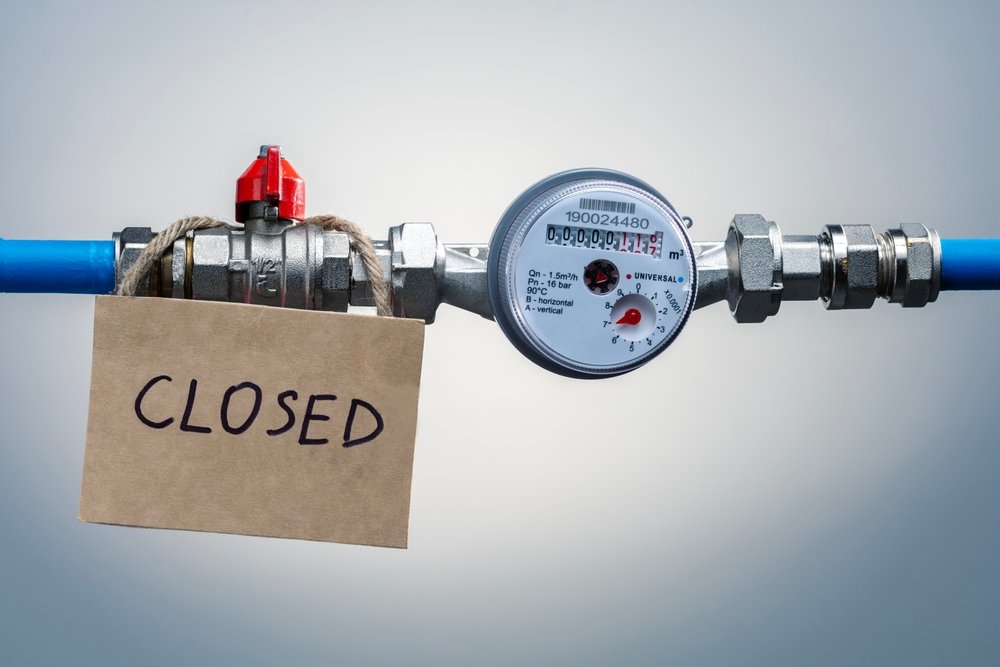Stop Water Connection Services
Stopping a water connection involves terminating the water supply to a property, either temporarily or permanently, and finalizing any outstanding billing with the water utility provider. Here’s a step-by-step guide to stop a water connection:
Request for Disconnection
- Contact the Water Utility Provider: The first step is to notify your water utility provider of your request to stop the water connection. You can usually do this via their customer service hotline, online portal, or by visiting their office.
- Required Information: When making the request, you’ll typically need to provide:
- Your account number or customer ID.
- Property address where the disconnection is required.
- Your contact information.
- The reason for disconnection (e.g., vacating the property, moving, renovation).

Submit a Formal Disconnection Application
- Application Process: Some water utilities require a formal application to be submitted. This can be done online or in person at the utility office.
- Choose a Disconnection Date: You will need to select a date for the disconnection. Ideally, give the utility company several days’ notice to allow them to process your request and arrange for a final meter reading or water shutoff.
Final Meter Reading and Billing
- Final Meter Reading: Before the water supply is stopped, the water utility company will either send a technician to perform a final meter reading or ask you to submit the meter reading online. This ensures that you are billed only for the water used up to the disconnection date.
- Final Bill: Once the final meter reading is completed:
- The utility provider will generate your final water bill.
- The bill will include any outstanding charges and usage fees up to the date of disconnection.
- Security Deposit Refund (if applicable): If you paid a security deposit when the water connection was established, the utility company will refund the deposit, often after deducting any outstanding charges.
Disconnection of Water Supply
- Water Shut-Off: On the scheduled disconnection date, a technician from the water utility will visit the property to shut off the water supply, usually at the main valve near the property boundary or at the water meter.
- Temporary or Permanent Disconnection:
- For a temporary disconnection, the water supply is shut off, but the meter and infrastructure remain in place for future reconnection.
- For a permanent disconnection, the water utility may remove or lock the water meter, especially if the property is being vacated or demolished.
Receive Disconnection Confirmation
- Confirmation of Service Termination: After the disconnection is complete, you will receive confirmation from the utility provider, either by email, letter, or SMS, confirming the water service has been successfully stopped.
- Final Receipt: You will also receive a final statement or receipt showing that the service has been terminated and no further charges will accrue beyond the disconnection date.
Reconnection (If Needed)
- Temporary Disconnection Reconnection: If you requested a temporary disconnection (e.g., for renovation purposes), you can contact the utility to schedule a reconnection when needed. A reconnection fee may apply.
- Permanent Reconnection: If the water connection was stopped permanently, the property’s new owner or tenant will need to apply for a new water connection to resume service.
Special Considerations:
- If Moving: If you are moving to a new residence, ensure that the new property has an active water connection and that the old connection is properly terminated to avoid billing confusion.
- Outstanding Balances: Make sure all outstanding water bills are cleared before disconnection to avoid late fees or penalties.
- Landlord Coordination: If you are a tenant, it’s important to coordinate the disconnection with the landlord to ensure the property is properly managed once you leave.
- In Case of Emergency: If an emergency disconnection is required due to leaks or property damage, some utilities offer expedited disconnection services.
Emergency or Immediate Disconnection
- In Case of Leaks or Damage: If there is an urgent issue such as a burst pipe or significant water leakage, you may request an emergency water disconnection. In some cases, shutting off the main water valve at the property might be necessary until the utility provider can intervene.
Stopping a water connection is typically a straightforward process, provided you give proper notice and ensure that all bills and paperwork are completed. Be sure to follow up with the utility company to confirm the service has been properly disconnected and that no further charges will accrue.

